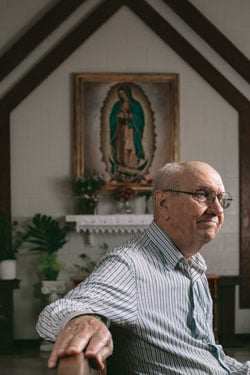With the Supreme Court’s OK, states begin imposing new laws to limit the vote

Photo of Brother Albert Phillipp by Josh Huskin
When Brother Albert Phillipp arrived at his newly formed parish in 1996, he found an area in dire need of help. The parish of San Felipe de Jesus consisted of desperately poor people who lived in ramshackle houses, many of which were unsafe. The sun-baked rural community lacked paved streets, garbage collection and streetlights.
But this was not a shantytown in some desolate Third World country. This was Cameron Park, a “colonia” just outside the city limits of Brownsville, Texas.
There are thousands of colonias in the U.S. These impoverished, unincorporated communities are situated in isolated areas, usually along the U.S.-Mexican border. Because they have no local government, they often go without such essentials as electricity, potable water, sewer systems, and safe and sanitary housing. In Texas alone, about 400,000 people live in colonias because they can’t afford to live anywhere else.
Soon after Phillipp began his ministry in Cameron Park, he went to the head of the county and asked it to provide garbage collection and other services for Cameron Park. The county commissioner refused because the people in that colonia didn’t vote. “He said he would act if 250 people voted,” Phillipp says.
So Phillipp worked with others in his parish to get people to the polls. In the November 1996 election, 250 people from the colonia voted. Then “local officials began to get interested in the needs of Cameron Park,” he says.
Phillipp is now retired, but he still does volunteer work in Cameron Park, which remains mired in poverty. The colonia is one of the 100 poorest places in the country. It has the lowest per capita income of any U.S. neighborhood with 1,000 or more families. But “now the streets are paved, and there are curbs, gutters and sidewalks. Streetlights have been installed. Garbage collection is available, and there are lots of social services,” Phillipp says. He adds that “the colonia is now a voting precinct, and in the last general election, 2012, we turned out over 1,300 votes.”
He fears, however, that the number of votes cast in the colonia will drop dramatically, starting with the next election, because Texas’ stringent voter ID law has gone into effect. That law, SB 14, restricts in-person voting to those people who can present photo IDs.
Click here to read the rest of “Sinking the Vote” from the January issue of the ABA Journal.



